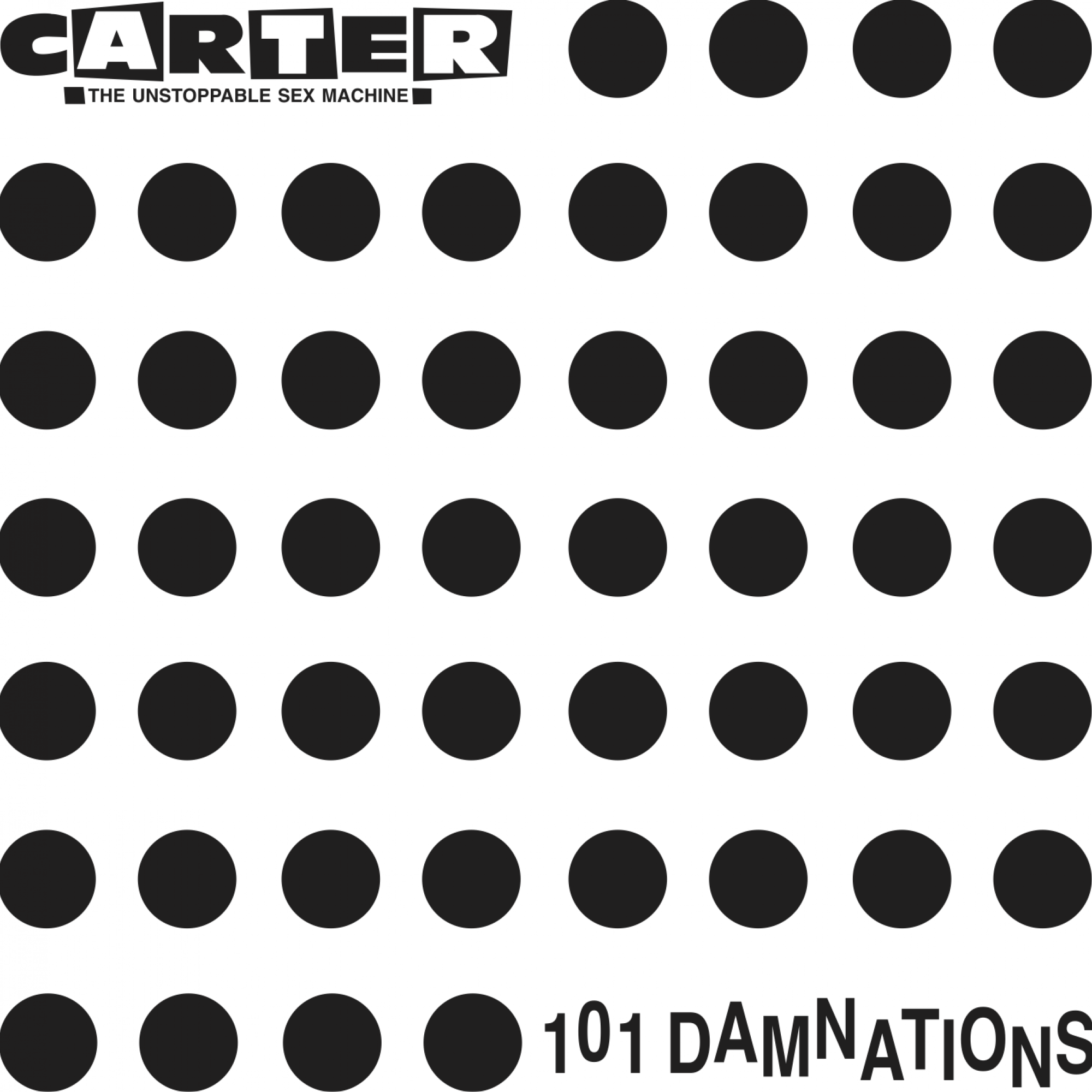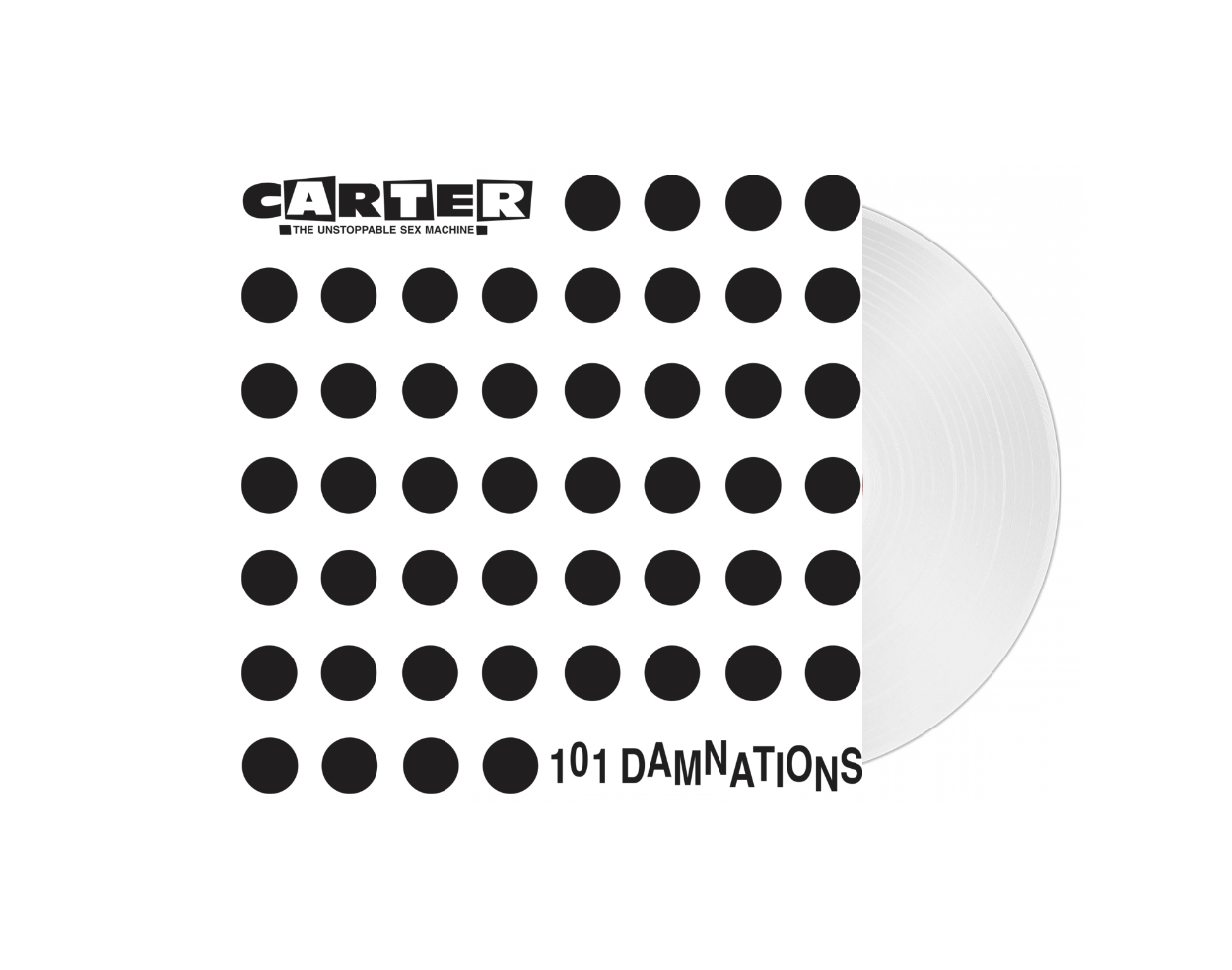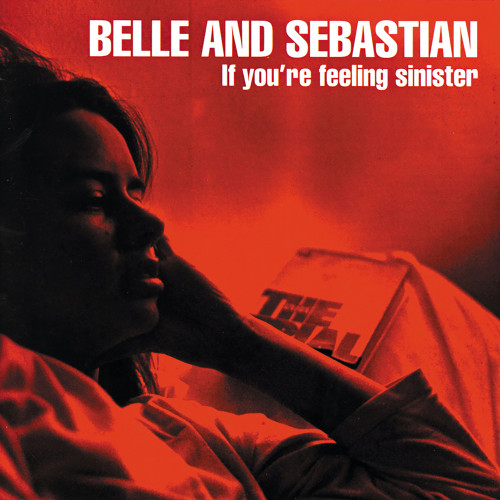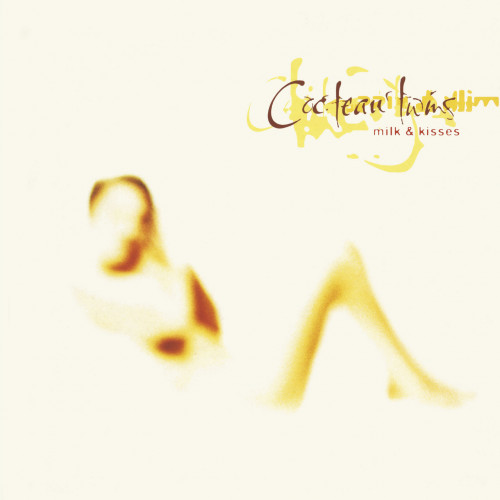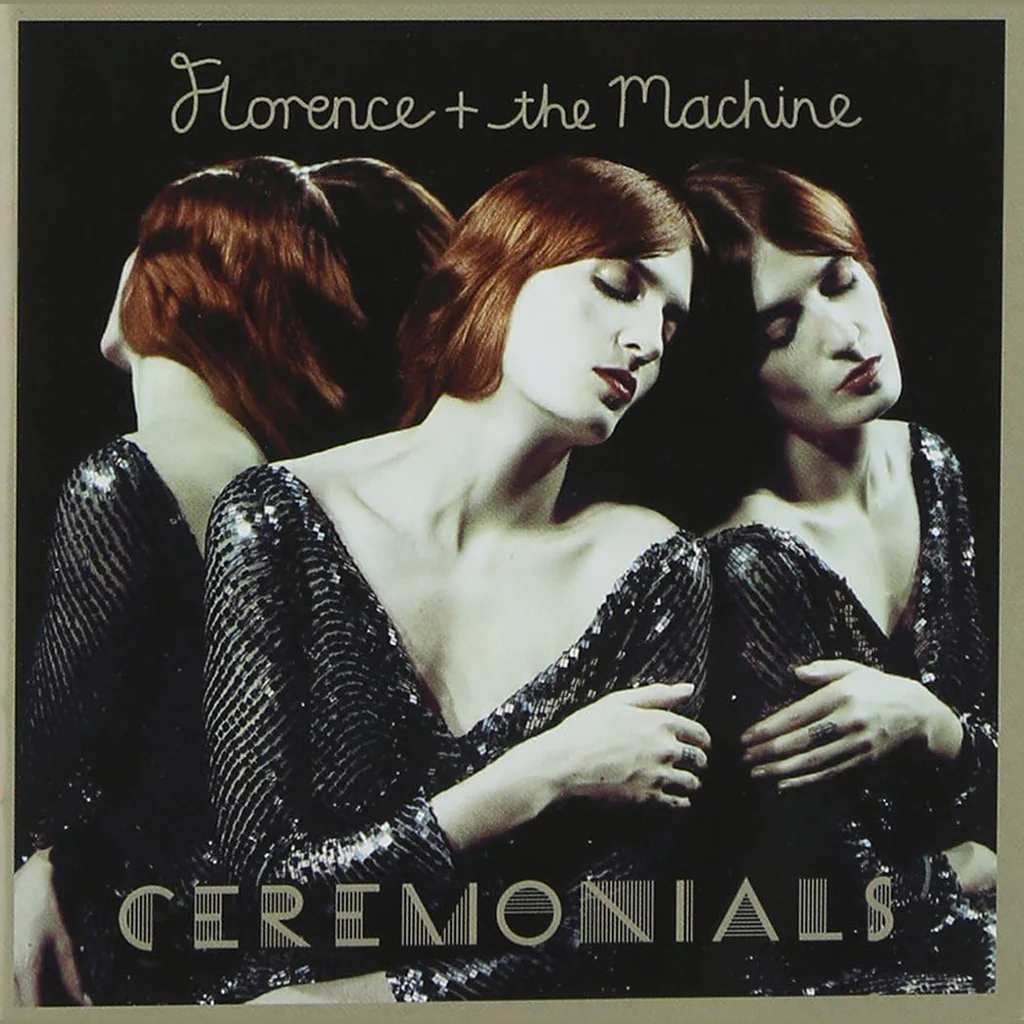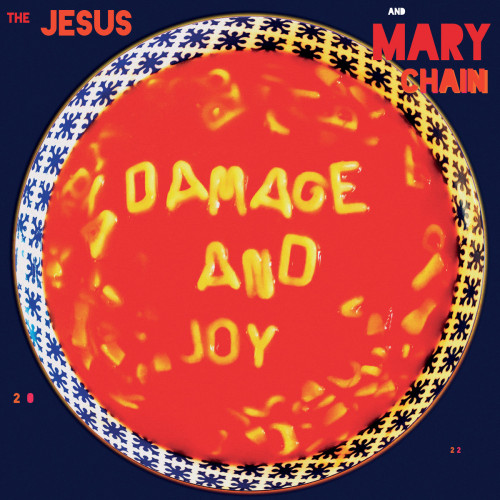Puns. Puns,
puns, puns, puns, puns. There's the title (and the cover art), there's the
songtitles -- "The Road to Domestos," "The Taking of Peckham
123" -- there's the endless stream of lyrical references, some hopelessly insular
to those not living inLondon, others understandable wherever you go. Puns,
then. It's Carter's calling card as much as anything, and is what kept many
people from liking them, matched with singer Jim Bob's very Sarf London and
generally undulcet tones. Thing is, Carter were never a comedy band per se;
buried underneath all the one-off lines like "It was midnight on the
murder mile/Wilson Pickett's finest hour" is a huge, beating heart.
Empathy for the rejects, go-nowheres and losers of the world is the true Carter
ethos, wedded to a fusion of endless cultural references, drum machines and
samples, and often blasting guitars. The result wasn't quite the hip-hop/metal
fusion of the late nineties, but in the duo's own unusual way, Carter were
something of a unique and thrilling prospect at its best, which the highlights
of Damnations show. Normally the name of the game is brash, quick, punk/glam
via rough early eighties technology pump-it-up pogoers, as the album's
late-breaking UK hit "Sheriff Fatman" demonstrated. The song itself
may be about a total rat-bastard of a slumlord, but the name of the game is
energy and fun. The tender, soppy side of Carter is what eventually comes
through the strongest, though, whether it's the familial screw-ups alluded to
in "Good Grief Charlie Brown" or the homeless person torched by two
strangers in "An All-American National Sport." "G. I.
Blues," which closes out Damnations with a lighter-waving
end-of-the-concert sweep, may not be the smoothest of anti-war songs, but enough
emotion comes through anyway that one can't easily resist it.
Ned Raggett. AllMusic.com
